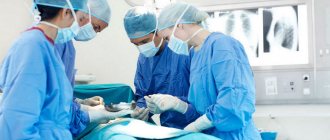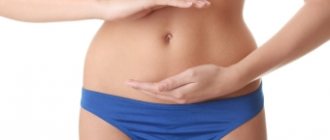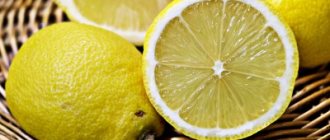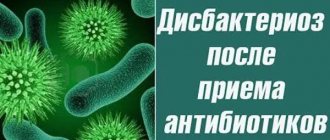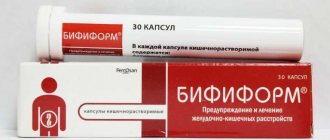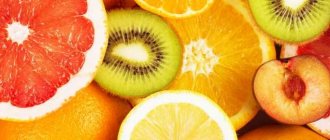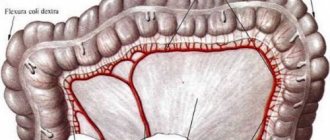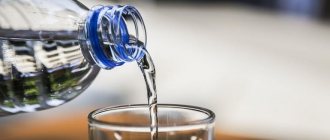No wonder doctors say that 90% of diseases begin or develop due to improper functioning of the intestines. All the main nutrients are absorbed in the small intestine, and water is absorbed in the large intestine. In addition, the intestines are the most important organ of the immune system. It contains about 80% of the body's immune cells. Malfunctions in the functioning of this organ immediately affect health, well-being and appearance! Experienced doctors can assume a problem with the intestines just by looking at the patient: his complexion, the condition of his skin...
Thus, an sallow-gray complexion, bluish circles under the eyes, rashes on the forehead, wings of the nose and cheeks can indicate intestinal dysfunction. And inflammatory formations on the back often indicate intestinal dysbiosis. That's why it's so important to take care of your intestines.
✔︎ What nutrition does the intestines need?
A sufficient amount of plant fiber in the diet is a necessary factor for intestinal health. On average, you need to eat about 25–45 g of fiber per day. By the way, it is estimated that in the diet of a European or American this figure is only 5–12 g. The source of fiber is not only vegetables and fruits, but also cereals, whole grain bread, and legumes. For example, a cup of cooked rice contains 4 g of fiber, half a cup of beans contains 7 g, and one banana contains 3 g. The process of digesting fiber requires a lot of water. For normal bowel function, it is recommended to drink about 2 liters of fluid per day.
8 Tips to Ease Your Allergies
How to normalize bowel function at home

The main condition for healthy intestines is impeccable adherence to the daily diet. By the way, these requirements are not complicated. Let's list them:
► drink a glass of standing water every morning on an empty stomach,
► eat breakfast taking into account the calorie norm,
► Each meal takes place in a calm rhythm: at the table, without talking, stress,
► all quick snacks on the run are cancelled, everything that comes to hand,
► four meals a day (even better than five) in small portions of dishes,
► prolonged chewing of food, remember that the stomach is toothless and cannot do this for you,
► dinner no later than four hours before bedtime.
For proper functioning of the intestines, proper nutrition is necessary. Of the total number of products, at least 2/3 should be fresh fruits and vegetables containing a sufficient amount of fiber. Plant dietary fiber takes part in the metabolic process and ensures high-quality cleansing of the intestines from toxins.
Thanks to fiber, the intestines are enriched with healthy intestinal microflora. Food products containing pectin actively contribute to the normalization of intestinal function. Pectin-containing microelements improve peristalsis, remove accumulated waste and toxins, and prevent the development of dysbacteriosis.
Fermented milk products, which reduce fermentation processes, occupy a special place in improving digestion. Daily consumption of these products creates favorable conditions for the growth of beneficial intestinal microflora, liberation from toxins, poisons, and impurities.
As for spicy, fatty, fried, salted, smoked foods, it is better to completely remove them from your daily diet. This also applies to refined sugar, chocolate and baked goods. They can be replaced with natural honey and dried fruits. Preservative juices, sweet carbonated water, and coffee are prohibited.
It is preferable to quench your thirst with fresh juices obtained at home, clean water, freshly brewed black or green tea.
A sedentary lifestyle (physical inactivity) is the worst enemy of the intestines. If you sit at a table for a long time due to your profession, without doing physical work, the intestines stop working and atony occurs. Poor digestion is observed with weak intestinal motility and lack of pelvic muscle tone.
This can be corrected by long walks, visiting the pool, yoga or fitness classes. This will not only help tone the intestines, but also improve the condition of the body. Stress has a very bad effect on the functioning of the intestines, and the body as a whole. Negative surges of psycho-emotional tension give rise to muscle spasms and complicate the processes of digestion and intestinal emptying.
You should always strive to relax and relieve emotional stress. You must know how to normalize intestinal function. There are no complicated rules here. This is a balanced diet, a correct lifestyle, which improve digestion and the functioning of all body systems.
We will try to tell you how to cleanse the body at home and what products to use to cleanse the intestines.
How to improve bowel function?
You now know that poor nutrition, a sedentary lifestyle, frequent stress, and snacking on the run disrupt the functioning of the intestines and digestive system. Such violations lead to discomfort and unpleasant sensations. The quality of your health depends on how you can improve your bowel function by using the necessary means and giving up bad eating habits.
How to improve bowel function to avoid constipation?
To do this you will need to change your daily diet. Provide regular, 4-5 meals a day. The exact time of each meal should be determined. You should exclude harmful foods from your regular menu:

- Refined sugar. Replace with dried fruits or natural honey.
- Bakery products, pastries.
- Refined products.
- Alcoholic, carbonated drinks, coffee.
To restore normal bowel function you need to:
- Fill your diet with adequate fluid intake, especially clean water.
- The amount of water you drink per day should be at least two liters.
- Make it a rule: drink a glass of standing water every morning on an empty stomach.
- Drink water or juices about twenty minutes before meals, and do not drink anything after meals for 30-40 minutes.
- Enrich your daily diet with fiber, which helps remove toxins and cleanse the intestines. Nuts, vegetables, fruits, and bran are rich in dietary fiber.
The mechanism of the beneficial effect of fiber on the intestines is as follows: it absorbs moisture, sugars, fats, undigested food and removes them from the body. By following the rules listed above, you will feel relief in five days.
✔︎ If the intestines fail
If a malfunction suddenly occurs in the intestines, you can take a laxative - herbal drops, lactulose, senna preparations, castor oil. But remember that these remedies do not work immediately, and sometimes require a course of treatment. Before taking them, you should consult your doctor. And only as an emergency measure, ready-made pharmacy microenemas (in a volume of 5 ml) are recommended. Or classic water enemas (150-200 ml of water, water temperature - 180). But don't get carried away with them! If the problem recurs, then professional help is needed.
The Second Brain: How Your Gut Controls Your Health
Treatment of diarrhea
Taking into account the cause of diarrhea, the following groups of drugs may be prescribed for its treatment:
- Intestinal sorbents.
- Antibiotics (for infectious diarrhea).
- Drugs that affect intestinal motility.
- Products that restore water-salt balance in the body.
To restore normal eubiosis in the intestines, regardless of the cause of diarrhea, the metaprebiotic Stimbifide Plus is recommended. The dietary supplement stimulates the growth of its own intestinal microflora, suppresses putrefactive and fermentation processes, has a positive effect on the body’s protective properties and prevents the proliferation of pathogenic microorganisms in the gastrointestinal tract. Stimbifid Plus contains a unique nutrient medium for bifidobacteria, which allows you to increase their population in a short period of time. This fact is confirmed by a comparative scale of the effectiveness of drugs for the treatment of diarrhea in adults and children.
✔︎ When to sound the alarm
If you notice blood or mucus in your stool, you are worried about bloating, constipation alternating with diarrhea, contact a coloproctologist. If necessary, the doctor will refer you for a colonoscopy. Using a long thin tube with a camera at the tip, the lumen of the large intestine and a small part of the small intestine are examined. If tumors are found during the procedure, the doctor takes tissue samples for a biopsy. By the way, colonoscopy is recommended for all people over 50 years old for early diagnosis of colorectal cancer. But if you have relatives in your family with cancer of the colon and rectum, you should not put off a colonoscopy - you need to conduct an examination 10-15 years earlier than the age at which cancer was diagnosed in a family member.
Dmitry Bordin, MD, Chief Gastroenterologist of the Moscow Department of Health
“Patients referred by a dermatologist often turn to a gastroenterologist with skin rashes. Indeed, pathology of the digestive organs can have skin manifestations. The condition of the skin often improves after successful elimination of Helicobacter pylori infection, the main cause of gastritis. Insufficient consumption of fiber (grain bread, vegetables and fruits) and an excess of sweet, starchy, fatty foods in the diet can also be accompanied by the appearance of rashes on the skin of the face. These changes are a consequence of excess load on the intestinal enzyme systems and an imbalance in the intestinal flora. In addition to skin manifestations, stool disturbances (constipation or diarrhea), bloating and rumbling in the abdomen are usually observed. If such symptoms are detected, you should contact a gastroenterologist for examination and selection of therapy.
Herbal preparations
In mild cases, herbal tablets can be used for constipation in adults. It should be noted that drugs in this group may have side effects, so be sure to read the instructions before use.
For intestinal disorders (constipation), take the following tablets:
- Sennade and its analogues;
- Phytolax.
Sennade tablets
Sennade laxative tablets are made from an extract of the leaves of a medicinal plant, which causes irritation of the mucous membrane of the digestive tract, which provokes bowel movements.
The active substance is based on anthraglycosides obtained by extraction from senna (cassia) leaves. The instructions for the drug describe in detail how to take senade. The medicine is a tablet for constipation in adults with different flavors (vanilla or chocolate).
Senade tablets for constipation are taken 1-2 tablets at night. If the effect is not observed in the next 24 hours, you can double the dosage after 2-3 days.
Usually the effect occurs 9-11 hours after consumption.
Taking this medication carries a risk of developing the following side effects:
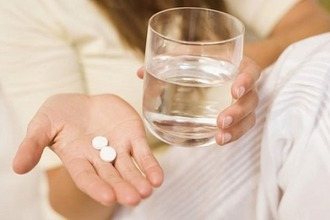
- Electrolyte imbalance;
- Hemato- and proteinuria (appearance of blood and protein in the urine);
- Cramping pain in the abdomen;
- Flatulence (increased gas formation);
- Nausea and vomiting;
- Fatigue, impaired consciousness, headache, convulsions, fainting;
- Rash;
- Diarrhea.
If the pharmacy does not have this particular product, then you can use the following analogues:
- Regulax;
- Sennaplant;
- Senadexin.
The main advantage of this drug is primarily its availability. You also need to take into account that these relatively fast-acting tablets with a mild effect are taken only for a short time. Otherwise, the digestive organs may become accustomed to laxatives.
Phytolax tablets
Phytolax is an effective but mild remedy for constipation in adults based on fruit. Chewable constipation tablets have a pleasant taste and do not need to be taken with water. The product also has other convenient forms of release: chocolates, tea, bars or concentrate for making drinks.
Before use, it is recommended to read the instructions, as there are the following contraindications for use:
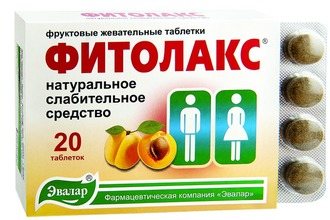
- Allergy to any of the components;
- Children under 14 years of age;
- Pregnancy and lactation;
- Combination with other senna preparations.
If you experience difficulties with bowel movements, you need to thoroughly chew 2 tablets of the drug at night. When the problem has been bothering you for more than 2 days, the dosage is doubled. In the form of tea, it is brewed as a regular drink, and the concentrate is drunk 1 tsp, having previously been dissolved in water according to the instructions.
Fitolax is not suitable for long-term use.
Treatment of intestinal diseases with herbs
There are a lot of medicinal herbs for treating intestinal diseases. There are herbs that improve digestion, eliminate intestinal upset and pain, and cleanse the colon. Medicinal herbs for the intestines can be taken in the form of infusion, decoction or tea. The optimal dose is usually about 100-150 ml for prophylaxis, lower dosage is possible for prophylaxis.
Collecting herbs has a beneficial effect on the function of the intestines, kidneys, liver, and stomach. Usually fruits, roots, and above-ground parts of the plant are used. Herbalists carefully select herbs to create mixtures that can bring maximum benefits. You can use ready-made pharmaceutical preparations, as well as fresh stems, flowers, leaves and fruits of the plant. For intestinal health, you need to increase the amount of folic acid, vitamins C, E, A, dietary fiber, calcium and selenium. It is necessary to increase physical activity; the intestines do not tolerate an inactive lifestyle.

Enzymes and choleretic agents
There are situations when constipation is caused by disruption of the pancreas and gallbladder. The pathology of these organs leads to improper digestion of food, which enters the large intestine in this form. Solid feces with food residues stagnate and cause constipation.
The presence of chronic pancreatitis requires regular use of enzyme preparations. The stool will be restored due to the normalization of digestion, preventing stagnation. The most accessible and effective means are:
- Panzikam;
- Pancreazim;
- Mezim 20000 and Forte.
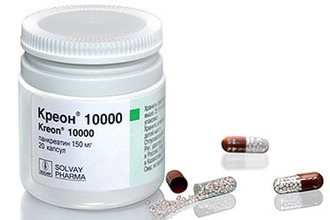
As well as the following more serious analogues in capsules (prescribed exclusively by a specialist):
- Creon;
- Panzinorm 10000;
- Hermital.
In case of pathology of the liver and biliary tract, natural bowel movement will occur if you use the following drugs:
- Choleretics (Allohol, Vigeratin);
- Cholekinetics (Pituitrin, Magnesium sulfate, Sorbitol, Xylitol);
- Cholespasmolytics (No-spa, Duspatalin, Eufillin).
